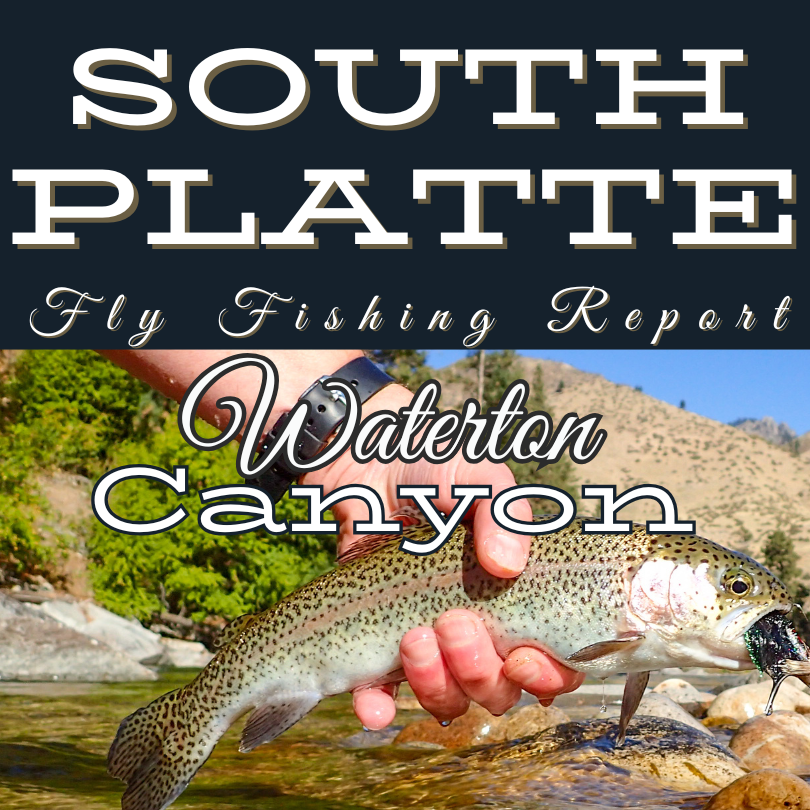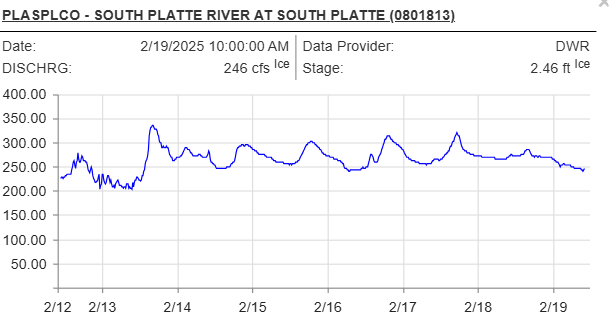Dive into a treasure trove of fishy wisdom and tips from veteran anglers to turn your frosty fishing escapades on the North Fork of the South Platte into a reel adventure. From picking the perfect gear to nailing the slickest techniques, you'll hook a deeper understanding of how to make your river time truly fin-tastic.
- Gear Up for the Cold: Choose equipment that withstands freezing temperatures, including corrosion-resistant rods and reels, heavier lines, and smaller hooks.
- Understand Fish Behavior: In colder weather, fish often seek deeper, slower-moving waters.
- Select Optimal Fishing Spots: Look for natural covers like fallen trees, rocks, or overhanging branches, as these structures provide shelter for fish.
- Master Cold Weather Techniques: Slow down your retrieve, use smaller, natural-looking bait, and consider adding scent attractants to appeal to fish relying on their sense of smell in cold water.
- Prioritize Safety and Warmth: Check weather forecasts before heading out, dress in layers, and stay hydrated, even in cold conditions. Inform someone of your fishing plans and expected return time for safety.
Choosing the Right Gear

When braving the frosty North Fork of the South Platte, picking the right gear is as crucial as remembering your fishing license. Start with a rod and reel that laugh in the face of freezing temperatures. Seek out equipment that scoffs at corrosion and ice, and don't be shy about using a heavier line and smaller hooks to up your catch game.
Now, let's talk fashion—layering is your new best friend. Begin with a moisture-wicking base layer to keep sweat at bay, then pile on the fleece or wool like you're auditioning for a winter catalog. Finish with a waterproof and windproof outer layer that says, "I fear no weather!" And for the grand finale, don insulated gloves, a cozy hat, and thermal socks to keep your extremities toasty.
Understanding the Fish Behavior

To up your fish-catching game in chilly weather, you need to get inside the mind of your finned friends. When the mercury drops, fish turn into couch potatoes, lounging in deeper, slower waters. So, scout out those cozy pools, eddies, and slack water where fish gather like it's a fishy family reunion. And don't forget to set your alarm—early birds and late risers get the worm, or in this case, the fish.
Patience is your best bait in the cold. Fish might take their sweet time to nibble, so settle in for a waiting game. Think of it as fishing yoga—slow, subtle movements when casting and retrieving can be your ticket to a successful catch in the icy waters. Namaste, fishies!
Selecting the Best Fishing Spots

Picking the perfect fishing spot is like finding the VIP lounge of the North Fork of the South Platte. Seek out those fishy hideaways with natural cover—think fallen trees, rocks, or branches that hang like nature's chandeliers. These are the fish's favorite hangouts, where they gather to gossip and snack. Also, keep an eye out for water depth changes, like drop-offs or submerged ledges, which are basically the fish equivalent of a buffet line.
And let's not forget the fishy thermostat! Cold-blooded critters like trout are picky about their water temps, preferring a cozy 50°F to 60°F. So, whip out that thermometer and aim for the fishy sweet spot. It's all about making sure your finned friends feel right at home!
Mastering Cold Weather Techniques

When the weather's chillier than a penguin's picnic, tweaking your fishing tactics is a must to reel in success. First up, slow your roll—fish aren't exactly in the mood for a high-speed chase in icy waters. Think of it as a leisurely stroll rather than a sprint, and you'll have them nibbling in no time.
Next, go for the minimalist approach with your bait. In cold water, fish are like picky eaters at a buffet, so smaller, natural-looking morsels are your best bet to catch their eye—and their appetite.
And for the pièce de résistance, add a dash of eau de fish to your bait. In the chilly depths, fish rely on their noses more than ever, so a little aromatic allure can make your bait the talk of the underwater town.
Staying Safe and Warm

When fishing in cold weather, it's vital to keep safety and comfort at the top of your tackle box. Start by playing meteorologist and check the weather forecast before you head out. Dress like an onion—layer upon layer—so you can peel off or pile on as needed. And don't forget that waterproof and windproof outer layer; it's your personal force field against Mother Nature's mood swings.
Hydration is key, even when it's colder than a snowman's nose. Cold temps can sneakily dehydrate you, so sip on fluids throughout your fishing escapade. Pack some warm beverages like tea or hot chocolate to keep your insides as toasty as your outsides.
Finally, always leave a breadcrumb trail of your fishing plans with someone. Cold weather fishing can be as tricky as a fish with a PhD, so having a backup plan or a buddy who knows your whereabouts is as essential as your lucky lure.
.png?width=300&height=100&name=Copy%20of%20Rise%20Beyond%20Logo%2012.31.24%20(300%20x%20100%20px).png)
.png)


.png)